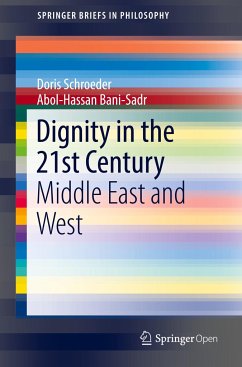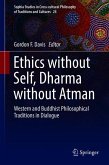This book is open access under a CC BY license.
This book offers a unique and insightful analysis of Western and Middle Eastern concepts of dignity and illustrates them with examples of everyday life.
Dignity in the 21st Century - Middle East and West is unique and insightful for a range of reasons. First, the book is co-authored by scholars from two different cultures (Middle East and West). As a result, the interpretations of dignity covered are broader than those in most Western publications. Second, the ambition of the book is to use examples from everyday life and fiction to debate a range of dignity interpretations supplemented by philosophical and theological theories. Thus, the book is designed to be accessible to a general readership, which is further facilitated because it is published with full open access. Third, the book does not defend one superior theory of dignity, but instead presents six Western approaches and one based on the Koran and then askswhether a common essence can be detected.
The answer to the question whether a common essence can be detected between the Koranic interpretation of dignity and the main Western theories (virtue, Kant) is YES. The essence can be seen in dignity as a sense of self-worth, which persons have a duty to develop and respect in themselves and a duty to protect in others. The book ends with two recommendations. First, given the 7 concepts of dignity introduced in the book, meaningful dialogue can only be achieved if conversation partners clarify which variation they are using. Second, future collaborations between philosophers and psychologists might be helpful in moving theoretical knowledge on dignity as a sense of self-worth into practical action. The "scourges" of a sense of self-worth and dignity are identified by psychologists as violence, humiliation, disregard and embarrassment. To know more about how these can be avoided from psychologists, is helpful when protecting a sense of self-worth in others.
This book offers a unique and insightful analysis of Western and Middle Eastern concepts of dignity and illustrates them with examples of everyday life.
Dignity in the 21st Century - Middle East and West is unique and insightful for a range of reasons. First, the book is co-authored by scholars from two different cultures (Middle East and West). As a result, the interpretations of dignity covered are broader than those in most Western publications. Second, the ambition of the book is to use examples from everyday life and fiction to debate a range of dignity interpretations supplemented by philosophical and theological theories. Thus, the book is designed to be accessible to a general readership, which is further facilitated because it is published with full open access. Third, the book does not defend one superior theory of dignity, but instead presents six Western approaches and one based on the Koran and then askswhether a common essence can be detected.
The answer to the question whether a common essence can be detected between the Koranic interpretation of dignity and the main Western theories (virtue, Kant) is YES. The essence can be seen in dignity as a sense of self-worth, which persons have a duty to develop and respect in themselves and a duty to protect in others. The book ends with two recommendations. First, given the 7 concepts of dignity introduced in the book, meaningful dialogue can only be achieved if conversation partners clarify which variation they are using. Second, future collaborations between philosophers and psychologists might be helpful in moving theoretical knowledge on dignity as a sense of self-worth into practical action. The "scourges" of a sense of self-worth and dignity are identified by psychologists as violence, humiliation, disregard and embarrassment. To know more about how these can be avoided from psychologists, is helpful when protecting a sense of self-worth in others.








